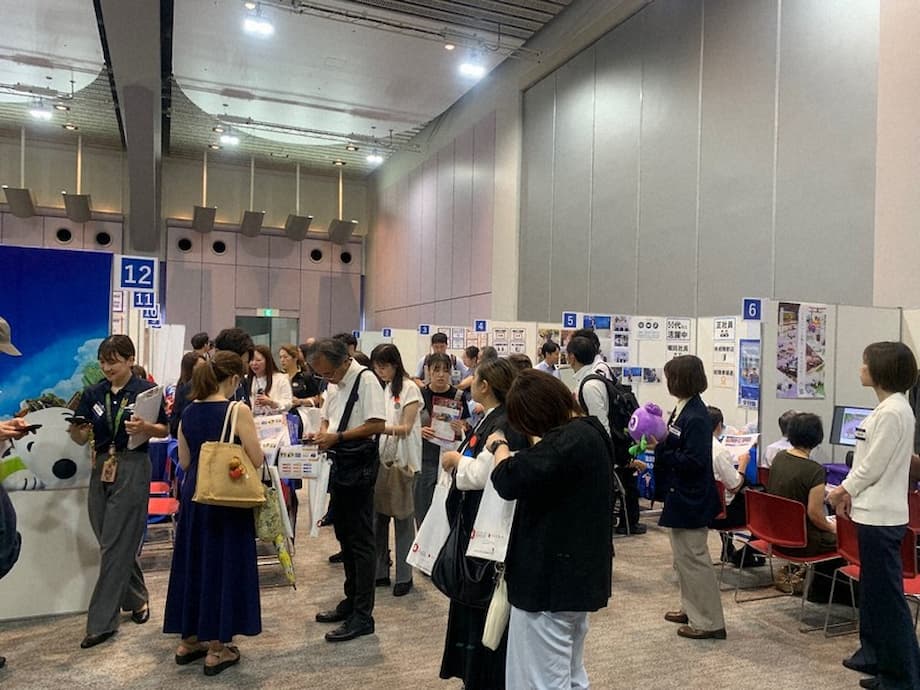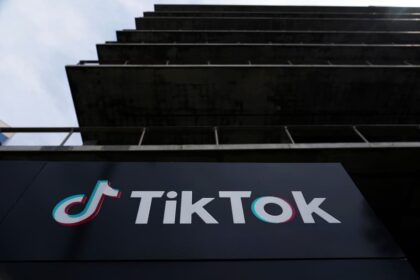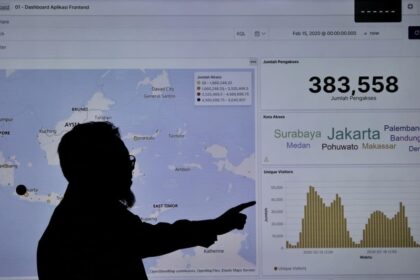Why Expo experience is in demand
As Expo 2025 Osaka, Kansai approaches its final day on Oct. 13, employers across Japan are competing to hire the people who kept pavilions and public areas running. A dedicated job fair held on Sept. 14 and 15 at ATC Hall in Osakas Suminoe Ward drew about 2,500 attendees and 107 exhibiting companies, from luxury hotels and department stores to manufacturers and theme parks. Recruiters say Expo staff bring a rare mix of language ability, cross cultural awareness, and polished hospitality learned under real world pressure.
The Expo site relies on roughly 20,000 workers during busy days, handling visitor guidance, security support, food service, cleaning, ticket inspection, lost property and information desks. Many of these workers were hired only for the Expo season. With the event ending, that talent is set to re enter the job market all at once. Companies view them as industry ready people who can step into customer facing roles with little extra training.
The event was organized by staffing firm Pasona. Executive managing officer Kyoko Sanematsu said the hospitality and problem solving experience gained from this national project will benefit careers long after the closing ceremony. College students who worked at corporate pavilions are aiming for hotel and aviation roles. International staff who managed teams at country pavilions are exploring careers in international exchange. Pasona also set up a consultation corner for foreigners studying Japanese, underscoring how global the Expo workforce has been.
What employers want from Expo trained staff
Recruiters describe three capabilities that stand out in Expo alumni. First, an ability to communicate with visitors in English or other languages while keeping information clear and friendly. Second, calm performance in high traffic settings where needs change by the minute. Third, a hospitality mindset that blends courtesy with quick decision making. Those strengths map closely to roles in hotels, department stores, airports, attractions, and premium retail.
Hotels, retail and luxury service
Hotel groups are expanding and need people who can deliver concierge level service from day one. Department stores want staff who can assist affluent travelers and repeat domestic customers with the same care they experienced at pavilion entrances and VIP lounges.
At one booth, a recruitment officer from The Royal Hotel, operator of Rihga Royal Hotels, outlined ambitions for growth and the need for service talent.
“We plan to launch multiple new ventures within our group and want to hire as many people as possible with high customer service skills and hospitality,” the officer said.
Naoya Araki, president of H2O Retailing, owner of Hankyu Hanshin Department Stores, described why bilingual communication matters for the department store floor and VIP salons.
“To keep growing, we need to attract affluent customers, including visitors from overseas. We hope to hire people who can communicate with those customers and deliver good hospitality,” Araki said.
Theme parks and attractions
Universal Studios Japan in Osaka is running monthly recruitment sessions at Hello Work employment centers through November and aims to hire more than 100 people. Expo staff have handled queuing, guest flow, lost property, and live entertainment support throughout the summer surge on Yumeshima. Those tasks closely mirror operations at a theme park.
Takanobu Okawara, a human resources manager at the company, explained why Expo experience translates well inside the park.
“Work at the Expo and at USJ is highly compatible. We expect many Expo workers will choose us,” Okawara said.
Company representatives said the flow of Expo alumni offers a timely boost after a period when applications had slowed. The approaching close of the Expo creates a natural moment for workers to consider their next step and for employers to make their pitch.
How the Expo became a training ground
Expo roles were planned with visitor care at the center. The Japan Association for the 2025 World Exposition commissioned a joint enterprise to recruit and manage an Expo Service Crew for front line operations. Beginning in April 2024, applications opened for staff who would handle information desks, ticket inspection, pushchair rentals, lost property and support for lost children. The positions came with structured training and clearly defined duties so workers could perform confidently once gates opened.
Official materials describe the service crew as the face of the event. The crew needed to greet millions of visitors, answer complex questions about exhibits and transport, and coordinate with security and medical teams when needed. Those tasks sharpen customer service instincts and situational awareness. People learn to give accurate directions, de escalate tense moments, and assist families in unfamiliar surroundings. The combination of calm delivery and quick coordination is exactly what many employers seek in front of house roles.
More information on the service crew program and responsibilities is available from the Expo organizer on its website at Expo 2025 recruitment information.
A crash course in omotenashi and crowd management
Expo staff practice omotenashi, a Japanese approach to hospitality that anticipates needs and seeks to elevate the guest experience. The concept goes beyond politeness. It requires active listening, awareness of the setting, and initiative to solve problems before they become complaints. Staff must move visitors smoothly from entrance gates to pavilions, keep lines orderly, and communicate delays and alternate routes in a way that reduces stress. They also practice micro team leadership, stepping in to help colleagues when pressure points appear.
Even uniforms reflect how seriously the Expo treats attendee comfort. Suppliers designed outfits for attendants that balance formality with function, using fabrics that stay breathable under summer heat and sudden rain. The uniform program for a signature pavilion worked to reduce waste and water use, and it incorporated new materials for heat and ultraviolet protection. The goal was to keep staff comfortable and focused during long outdoor shifts while presenting a cohesive visual identity.
Wages, commutes and a tight labor market
Japan is experiencing persistent labor shortages in customer service, hotel and food service. The return of inbound tourism has raised demand for multilingual staff just as many businesses stretch to maintain coverage. Expo hiring arrived in this climate. Job listings tied to Expo operations, including transportation roles, offered hourly pay that is far above the average for part time and temporary jobs in the Kansai region, approaching or exceeding 2,000 yen per hour for some positions.
Several practical factors pushed wages higher. The commute to Yumeshima, the reclaimed island where the venue sits, can be time consuming. Workers needed reliable transport for early morning and late evening assignments. Driver roles also moved up the pay scale after legal overtime rules tightened in 2024, which raised the value of qualified operators. Higher pay helped organizers and contractors attract staff quickly enough to meet opening day targets.
Wage competition is not only an Expo story. Major attractions in the region have raised part time rates to secure workers, and hotels have increased recruitment budgets during the tourism rebound. Some smaller businesses near the venue report difficulty matching the rates offered by large operators, which can make it harder to retain staff. Recruiters expect upward pressure on hourly wages to remain visible through the end of the year as Expo contracts wind down and firms race to lock in talent for the winter holidays and the spring travel season.
Inbound travel and service capacity
International arrivals have strengthened service demand in Kansai airports, city hotels and shopping districts. That has a direct link to Expo skill sets. Alumni can greet travelers in English, Mandarin, Korean or Spanish, direct them to transport and accommodation, and resolve common issues with lost items or ticketing. Those abilities are scarce in many workplaces. Companies that rely on premium service or tourist spending see an opportunity to improve guest satisfaction by hiring people who gained those habits during six months of high stakes work.
International teams and new pathways
The hiring story around the Expo is also a global one. Pavilion teams brought together workers from Japan and abroad. At the job fair, foreign staff who came on working holiday visas sought roles that would let them keep improving their Japanese while using the customer service experience they gained this year. Support desks helped with questions from foreign residents about resumes, language study and interview preparation, a sign that employers are open to a diverse talent pool.
Country pavilions recruited locally and internationally, creating multiple career pipelines. The Canada Pavilion sought bilingual reception and protocol staff, operations support and drivers, inviting Canadians with Japanese ability and local residents to apply ahead of the Expo season. Roles in the United States Pavilion were filled through a Youth Ambassador program run with support from the U.S. Department of State, which brought young Americans to Japan for three or six month terms with travel, housing and insurance covered, and a stipend provided. Japanese language was preferred but not required, and the program emphasized public engagement and cultural exchange.
These programs give participants a first step into international careers, from event operations and tourism to public diplomacy and trade. Alumni often move into airlines, hospitality management, destination marketing, cultural institutions and technology roles that support visitor experiences. The skills are transferable. Guiding a family through a crowded pavilion while keeping a performance schedule on track is not so different from moving passengers through a busy gate area or leading a sales floor during a holiday rush.
Support for foreign residents in Osaka
Employers are also thinking about retention. For foreign residents, language training and a clear path to advancement can be the difference between a temporary gig and a long term role. The job fair consultations for foreigners studying Japanese point to a pragmatic approach. Companies that invest in language support, mentorship and transparent promotion criteria can tap international staff who already understand Japanese customer expectations and etiquette. That mix of cultural awareness and ongoing skill growth can raise service quality across a team.
What happens after closing day
Recruitment will not stop when gates close on Oct. 13. Public employment centers in Osaka have scheduled career sessions that target service workers, and private employers are planning follow up events to catch candidates who could not attend the big fair. Universal Studios Japan is continuing its monthly information sessions through November. Department stores and hotel groups are expected to run rolling interviews into winter as seasonal demand rises.
Many Expo workers want to stay in roles that combine hospitality and international exposure. Employers say the best fits are in sectors that run all year and appreciate front line leadership:
- Airport and airline customer service, with roles in check in support, lounge service and gate assistance
- Hotels and resorts, covering concierge desks, front desk, guest relations and events
- Theme parks and attractions, including guest services, parade and show support, and operations
- Department stores and premium retail, with a focus on multilingual service and VIP client relations
- Food and beverage groups that serve tourists and business travelers
How Expo staff can present their experience
Recruiters advise candidates to translate Expo tasks into the language of business outcomes. That makes skills concrete and measurable. A short checklist can help:
- Detail peak day volumes handled and average visitor interactions per shift
- Highlight language use with examples, such as guiding tour groups or resolving lost property in English or another language
- Describe teamwork, including how you coordinated with security, medical teams or transport staff
- Give one example of turning a stressful situation into a positive outcome for a guest
- Show flexibility with shifts, weather and sudden program changes
Those specifics tell hiring managers that Expo veterans can add value quickly. The story of the event is compelling on its own. The key is to link it directly to the responsibilities listed in each job description, such as guest recovery, sales floor coverage, or queue management.
What to Know
- About 2,500 Expo workers attended a two day job fair near the venue, where 107 companies set up booths
- Employers prize Expo experience for language ability, calm under pressure and hospitality
- Universal Studios Japan is holding monthly sessions at Hello Work in Osaka and aims to hire more than 100 people
- Hotel and retail groups want bilingual staff who can serve affluent domestic and overseas customers
- Expo service crew roles covered information desks, ticket inspection, lost property and family support
- Hourly pay tied to Expo operations rose toward 2,000 yen, reflecting commutes to Yumeshima and tight labor supply
- International pavilion programs created career paths for foreign and Japanese staff, from Canada and USA teams to working holiday participants
- Follow up job fairs and rolling interviews are expected after Oct. 13 in airports, hotels, attractions and retail












